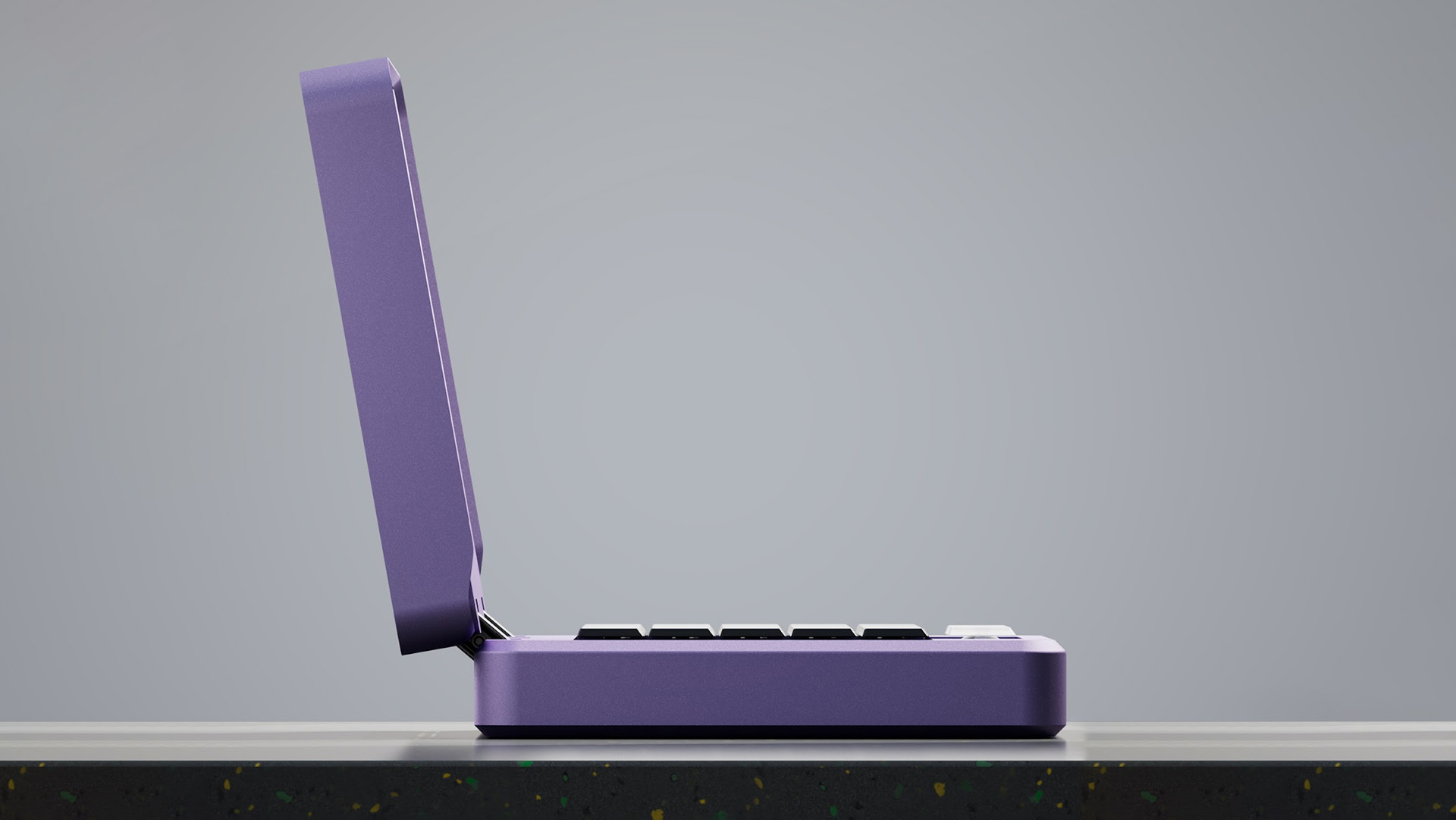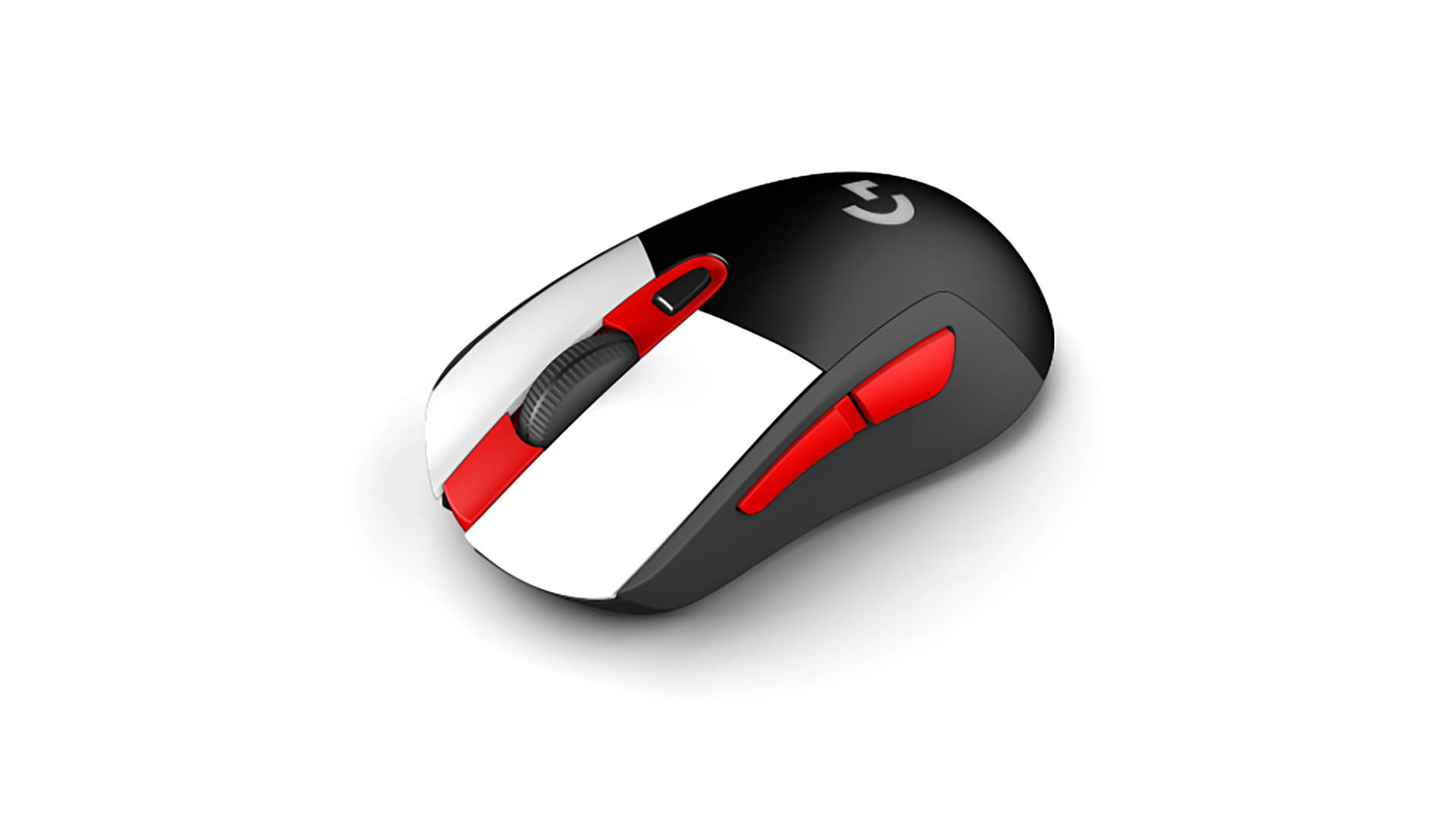Gaming laptops could learn a lot from this adorable open source mini laptop
It's modular, recyclable, open source, ortholinear, moddable, 3D printable, and more.

Forget what you know about gaming laptops and instead take a look at this mini laptop from German designer MNT. This is the Pocket Reform, and it throws out the rulebook for laptop design and forges a new path; it's moddable, open source, recyclable, eco-friendly, and entirely adorable.
There are a lot of things I like about this laptop but most of all that it appears to entirely do away with the idea that a laptop isn't upgradeable. Sure on a modern gaming laptop you can probably swap the SSD and RAM, but with the Pocket Reform you can entirely swap out its innards. You can even 3D print new parts, including a new case, if you want. It's entirely open to interpretation and innovation.
It's similar to Framework's Mainboard in that way, which is another modular laptop trying to open up the portable platform. However, these two differ in that where the Mainboard offers relatively powerful parts, the Pocket Reform's are much less so. You can choose between the NXP i.MX8M Plus, NXP Layerscape LS1028A, Pine SOQuartz RK3566 or Raspberry Pi CM4. If you don't want any of these Arm-powered options, there's the Xilinx (now AMD) designed Kintex-7 FPGA too, though that's not going to be for everyone.
These processor modules all come with RAM attached but can be swapped out in a pinch. The source code for all the parts is also available, if required. Of course, you're not going to get much PC gaming done on a machine with no discrete GPU or high-performance parts, but perhaps there's some scope for retro emulation gaming on the go.
The Pocket Reform comes with a screen that's only 7-inches across diagonally. Though that runs at a 1080p resolution, which makes for a fairly high pixel pitch of 310 ppi. If you're after something bigger, there is the MNT Reform, which is a 12.5-inch device. Still not massive, but a little more traditional in size than the Pocket. You can actually use the MNT Reform's processor modules within the 7-inch Pocket, which is pretty neat.
Yet this mini laptop's neatest trick, at least to a fan of clacky keyboards like myself, is that the onboard mechanical keyboard (fitted with Kailh Choc White switches) is in an ortholinear layout. All the buttons are lined up vertically for ergonomic typing, and once you get used to the layout it's an absolute dream to type on.
For storage, there's an NVMe SSD slot, a MicroSD slot, and up to 128GB of eMMC flash onboard.
Keep up to date with the most important stories and the best deals, as picked by the PC Gamer team.


Best gaming mouse: the top rodents for gaming
Best gaming keyboard: your PC's best friend...
Best gaming headset: don't ignore in-game audio
When it comes to connectivity, you've plenty of options, too. There's onboard Wi-Fi and Bluetooth with the standard i.MX8MP module, but also a WWAN slot for mobile internet if you want portable 4G/5G.
MNT doesn't specify a battery life for this device as of yet, but with 8,000mAh between its two batteries, I would guess it will last quite a while on a single charge.
There's just something about this quirky little device that grabs my attention, and while it's not going to make much of a gaming machine, it needn't matter. I'd take Linux if it meant such a small and savvy design because ultimately it's the modularity and openness of this system that really appeals.
Make a module with the APU ripped right out of the Steam Deck and I'd be all over it.
You have to keep an eye on the Pocket Reform's product page for updates on availability, as it's not available on the company's store just yet.

Jacob earned his first byline writing for his own tech blog. From there, he graduated to professionally breaking things as hardware writer at PCGamesN, and would go on to run the team as hardware editor. He joined PC Gamer's top staff as senior hardware editor before becoming managing editor of the hardware team, and you'll now find him reporting on the latest developments in the technology and gaming industries and testing the newest PC components.

